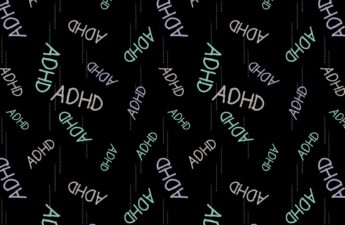Category: Mental Health
Climate change and mental health: How extreme heat can affect mental illnesses
Many people can relate to the sleepless nights during hot summer months, as well as anecdotal experiences of irritation and aggression when thermally uncomfortable.
But for those living with mental illnesses, the hazard of extreme heat is more dire than temperamental responses to day-to-day disruptions.
What’s the difference between shyness and social anxiety?
The terms “shyness” and “social anxiety” are often used interchangeably because they both involve feeling uncomfortable in social situations. However, feeling shy, or having a shy personality, is not the same as experiencing social anxiety (short for “social anxiety disorder”).
Nightmares could be an early warning sign of an autoimmune disease flare-up – new study
Many patients could describe nightmares that happened just before their flares. Although patterns varied between different people, they were often similar in each person’s flare-ups. Patients often knew which symptoms were a sign that their disease was about to get worse.
The design and marketing of mental health chatbots may result in users’ misconceptions about their therapeutic value.
Psychedelics could make mental health worse in people with a personality disorder
Various personality disorders might respond differently to psychedelics. For instance, people with histrionic personality disorder (excessive attention-seeking and emotional overreaction) or borderline personality disorder (emotional instability, intense relationships and fear of abandonment) might feel worse or more unstable. And those with schizotypal personality disorder (social anxiety, odd beliefs and eccentric behaviour) could become more paranoid. People with narcissistic personality disorder (excessive self-importance, lack of empathy, and need for admiration) may struggle with the self-reflective nature of psychedelics because they often have a hard time handling criticism.
Increasingly sophisticated AI systems can perform empathy, but their use in mental health care raises ethical questions
Some examples of AI applications include: screening tools in primary care settings, enhanced tele-therapy sessions and chatbots offering accessible 24/7 emotional support. These can act as bridges for anyone waiting for professional help and those hesitant to seek traditional therapy. However, this turn to emotion-AI comes with a host of ethical, social and regulatory challenges around consent, transparency, liability and data security.
Beware online mental health chatbots, UW specialists warn
AI chatbots may someday play an important role in mental health care, but many currently online are untested and unsafe.
Running or yoga can help beat depression, research shows – even if exercise is the last thing you feel like
We found walking, running, strength training, yoga and mixed aerobic exercise were about as effective as cognitive behaviour therapy – one of the gold-standard treatments for depression.
There’s a new pill for postpartum depression, but many at-risk women face hurdles
Suicide and overdoses are among the leading causes of maternal death in the U.S.
Meditation Is Big Business. The Science Isn’t So Clear.
For more than two decades, various studies have suggested that meditation and mindfulness — that is, being aware of the present moment — can help reduce and improve pain management, lending some credence to the notion that the brain can affect the body. Such results have helped the field grow into a multibillion-dollar industry, populated by meditation apps, guided workshops, and upscale retreats.
Yet the field has also faced sharp criticism from psychologists and researchers who say the health benefits are overstated and some of the research methodologically flawed.
Perimenopause usually begins in your 40s. How do you know if it has started?
Perimenopause usually begins in the early to mid-40s. Some people even begin perimenopause earlier, due to premature ovarian insufficiency or medical treatments such as chemotherapy or surgical oophorectomy (ovary removal).
How can I get some sleep? Which treatments actually work?
You might have tried breathing exercises, calming music, white noise, going to bed in a dark and quiet bedroom, eating different foods in the evening, maintaining a regular sleep pattern, or reducing caffeine. But after three to four weeks of what seems like progress, your insomnia returns. What next?
How do stimulants actually work to reduce ADHD symptoms?
Stimulant drugs are thought to alter the activity of key neuotransmitters, dopamine and noradrenaline, in the brain. These neurotransmitters help with attention and focus, among other things.
Medical exceptions to abortion bans often exclude mental health conditions
Despite mental health conditions making up more than 20% of maternal deaths and 1 in 5 women suffering maternal mental health conditions, several states explicitly exclude mental health conditions as exceptions to abortion restrictions.
Insurers often shortchange mental health care coverage, despite a federal law
The Biden administration is pushing insurers and state regulators to improve mental health care coverage. The move comes as overdose deaths rise and youth mental health problems grow more rampant, disproportionately affecting communities of color. Inflation and a shortage of mental health care providers, including psychiatrists and specialists who treat adolescents, further hinder access to care.











